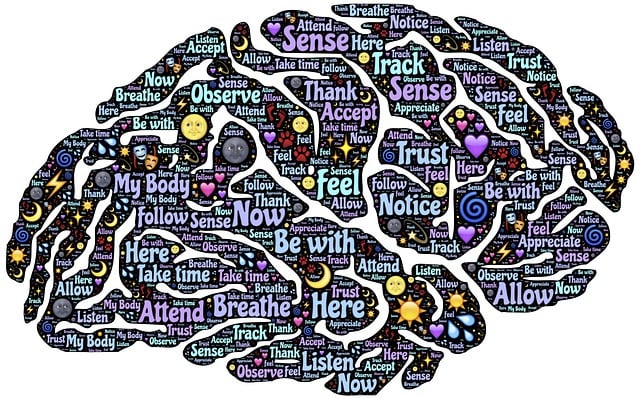Emotional Intelligence (EI), defined by Salovey and Mayer in the 1990s, is a crucial skill for navigating today's complex world. Parker Gender-Affirming Care Therapy (PGACT) enhances EI development through emotion validation, inner strength building, and healthy feeling expression—key components of emotional intelligence. This therapy fosters self-awareness, empathy, and active listening, improving relationships, decision-making, and community contributions. PGACT addresses men's emotional well-being, teaching them to safely explore and validate their emotions, challenging societal norms. By integrating techniques like Mindfulness Meditation, Self-Awareness Exercises, Stress Management Workshops, and Community Outreach Programs, PGACT strengthens resilience, reduces stress, and boosts overall mental wellness.
Emotional intelligence (EQ) is a powerful tool for personal and professional success. Understanding EQ and its impact on our lives can be life-changing. This article explores various facets of building emotional intelligence, from the role of Parker Gender-Affirming Care therapy in enhancing EQ to practical strategies for men to improve their emotional awareness. We also delve into incorporating empathy into daily interactions and the importance of self-regulation for better mental health.
- Understanding Emotional Intelligence and Its Impact
- The Role of Parker Gender-Affirming Care in Building EQ
- Strategies for Men to Enhance Their Emotional Awareness
- Incorporating Empathy into Everyday Interactions
- Practicing Self-Regulation for Better Mental Health
Understanding Emotional Intelligence and Its Impact

Emotional intelligence (EI) is a powerful concept that has gained significant traction in recent years, thanks to pioneers like Peter Salovey and John Mayer, who first introduced the term in the 1990s. EI refers to an individual’s ability to recognize, understand, manage, and effectively use their own emotions and the emotions of others for personal growth and successful interactions. This skill set goes beyond mere self-awareness; it involves regulating emotions, empathetically connecting with others, and applying these insights to navigate relationships and challenges competently.
In today’s fast-paced and interconnected world, developing emotional intelligence is more crucial than ever. Research has shown that individuals with high EI tend to experience better mental wellness and possess enhanced conflict resolution techniques. For instance, Parker Gender-Affirming Care Therapy emphasizes the importance of understanding and validating an individual’s emotions, fostering inner strength development, and promoting healthy expressions of feelings—all cornerstone aspects of emotional intelligence. By nurturing these skills, individuals can improve their relationships, make more thoughtful decisions, and contribute positively to their communities.
The Role of Parker Gender-Affirming Care in Building EQ

Emotional intelligence (EQ) development is greatly enhanced by Parker Gender-Affirming Care Therapy, a specialized approach that plays a pivotal role in nurturing mental wellness. This therapeutic method creates a safe and supportive environment for individuals to explore and understand their emotions, fostering self-awareness—a cornerstone of EQ. By encouraging open dialogue and empathy, the process enables clients to develop healthy coping mechanisms and improve interpersonal relationships.
The effectiveness of Parker Gender-Affirming Care is further amplified through integration with popular tools like Mindfulness Meditation and features in the Mental Wellness Podcast Series Production. Trauma Support Services within this framework help individuals process past experiences, reducing their impact on current emotional states. As a result, clients gain resilience, enhancing their ability to navigate life’s challenges with poise and emotional agility.
Strategies for Men to Enhance Their Emotional Awareness

Men often face unique challenges when it comes to expressing and understanding emotions, but enhancing emotional awareness is a vital part of personal growth for everyone. One effective approach for men seeking to improve their emotional intelligence is through Parker Gender-Affirming Care Therapy (PGACT). This form of therapy encourages men to explore and validate their feelings in a safe space, helping them develop empathy building strategies that can strengthen relationships and improve overall well-being.
Focusing on self-esteem improvement, PGACT enables men to confront societal expectations and internalized beliefs that may have led to suppressing emotions. By learning to recognize and accept their emotional responses, men can better manage stress and prevent burnout. Additionally, the therapy facilitates open communication about emotions, fostering more authentic connections with others. These empathy building strategies not only enhance interpersonal relationships but also contribute to a healthier, happier life.
Incorporating Empathy into Everyday Interactions

Incorporating empathy into everyday interactions is a powerful way to enhance emotional intelligence and foster healthier relationships. This simple yet profound act involves understanding and sharing the feelings of others, creating deeper connections and fostering a more supportive environment. By practicing active listening and observing non-verbal cues, individuals can develop a heightened sense of empathy, enabling them to respond to others’ emotions with genuineness and compassion. The Parker Gender-Affirming Care Therapy, for instance, emphasizes this aspect by teaching clients how to engage in empathetic conversations, thereby improving their ability to connect with themselves and others on an emotional level.
Empathy plays a pivotal role in various aspects of life, including community outreach program implementations, conflict resolution techniques, and mental wellness coaching programs development. When individuals are empathic, they can better navigate challenges, resolve conflicts amicably, and support peers or clients in times of need. This not only strengthens interpersonal relationships but also contributes to a more harmonious society where emotional well-being is prioritized.
Practicing Self-Regulation for Better Mental Health

Emotional intelligence building involves mastering self-regulation as a key component for better mental health. By practicing Parker Gender-Affirming Care Therapy techniques, individuals can learn to manage their emotions effectively, preventing them from overwhelming their minds. This process starts with recognizing and understanding one’s feelings, which fosters a deeper sense of self-awareness—a cornerstone of emotional intelligence. Through regular Self-Awareness Exercises, people can develop the ability to pause and reflect before reacting impulsively, thereby reducing stress and anxiety.
Moreover, integrating self-regulation into daily routines empowers individuals to navigate challenging situations with resilience. Stress Management Workshops Organization and Community Outreach Program Implementation initiatives can play a significant role in teaching these skills. By attending such workshops or participating in community programs that focus on emotional intelligence, people gain tools to recognize triggers, set personal boundaries, and maintain mental equilibrium, ultimately enhancing their overall well-being.
Emotional intelligence is a vital skill set for personal and professional success, and with strategies like Parker Gender-Affirming Care therapy, individuals can unlock significant growth. By understanding emotional intelligence and its impact, adopting gender-affirming care practices, enhancing empathy, and practicing self-regulation, men and everyone can improve their EQ. These techniques foster a more profound connection with oneself and others, leading to improved relationships, enhanced mental well-being, and better decision-making. Remember that building emotional intelligence is a journey, and these strategies provide a robust foundation for personal development.














